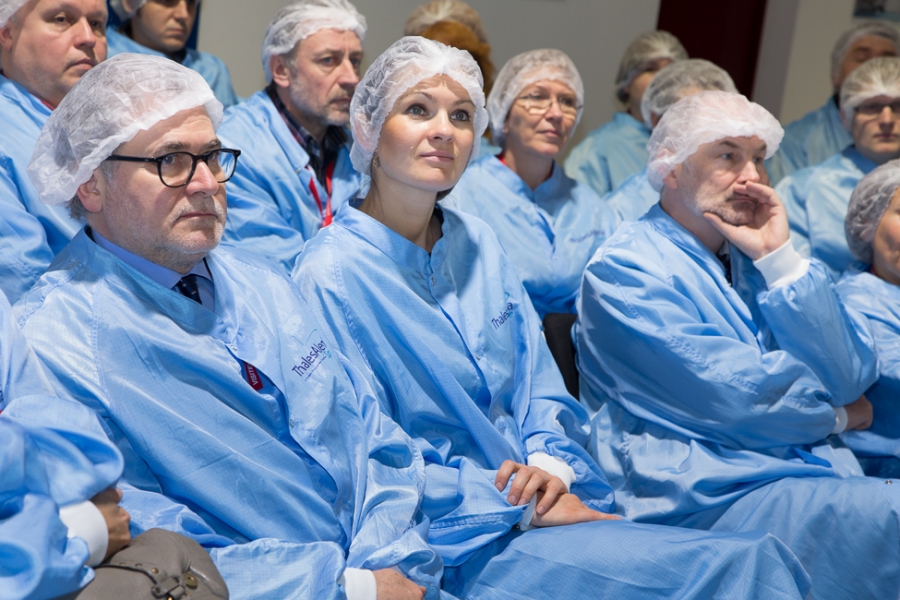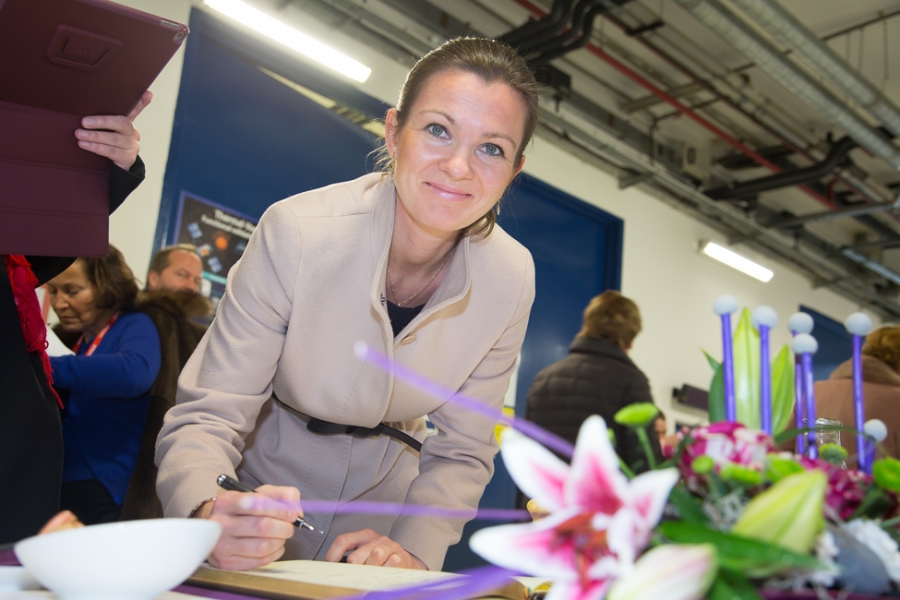Estonia in the spotlight at Thales Alenia Space

On Wednesday, February 3, 2015, Estonia officially became the 21st member of the European Space Agency (ESA). Reflecting this milestone, the Estonian Minister of Foreign Trade, Entrepreneurship and Communications, Anne Sulling, led a delegation to visit the main players in the French space industry based in Toulouse. On February 2, they visited the Thales Alenia Space plant in Toulouse.
About Estonia
A Baltic country in northern Europe, Estonia is known for its keen interest in new technologies, especially everything digital. Located on the eastern bank of the Baltic Sea, and south of the Gulf of Finland, the country offers several defining characteristics: 10% of its territory is made up of an archipelago with over 1,500 small islands; its forests and other wooded areas are concentrated in nearly half of the country; and Estonia counts nearly 4,000 lakes. This latest member of ESA is highly sensitive to all issues related to climate change, in particular rising water levels, and environmental impact. Copernicus, ESA's most ambitious environmental management program, in which Thales Alenia Space is a lead partner, could help address the country's specific concerns.

Thales Alenia Space: working for countries that want to develop their space potential
Over the last few years Thales Alenia Space has supported several countries in developing their space programs. In the Czech Republic, for example, Thales Alenia Space was able to capitalize on the country's well-known expertise in mechanical engineering to offer it a partnership as subcontractor on the Iridium NEXT program. That's how the Czech Republic, which did not start with any special skills in space technology, will now supply some 500 mechanical components for the new Iridium constellation. This country also supplies the Cryostat, a cooling system that is a key part of the main instrument on Meteosat Third Generation (MTG) satellites, as well as cutting-edge mechanical parts for this weather satellite. Anne Sulling and the entire Estonian delegation were keenly interested in this example of a very successful international partnership.

Concerning Estonia's ESA membership, on February 4 Ms Sulling stated:
"Estonia can develop its high-tech capacity as a full-fledged member of ESA. Our business leaders and researchers will also expand their potential scope of collaboration with the leaders of the European space industry."


